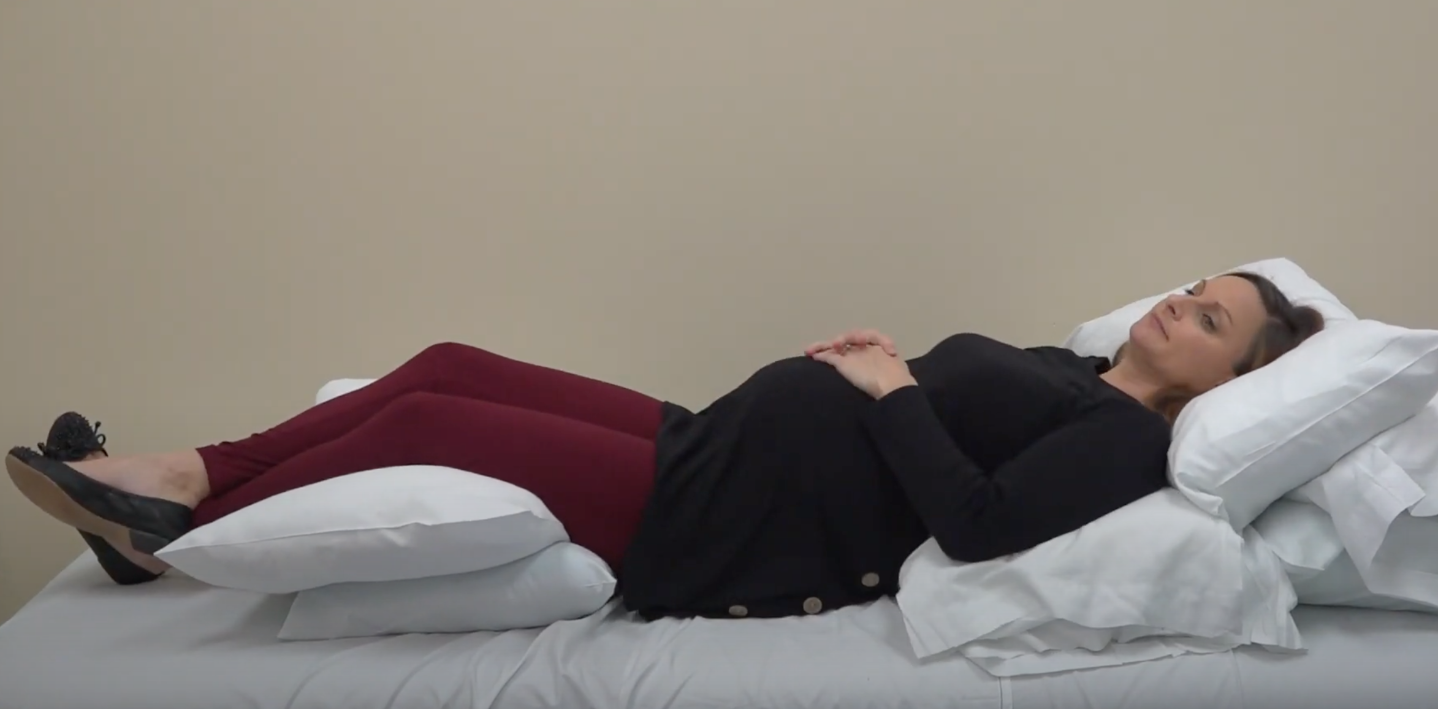Understanding the Holistic Care of a Women's Health Nurse Practitioner
FEB 10, 2026WHNPs consider the intricate interplay of physical, emotional, social, and spiritual factors that impact your health.
Read More
During pregnancy, you may find it difficult to rest and find a comfortable position due to back, hip, abdominal or pelvic pain. In this video, you will be shown positioning techniques and the use of pillows to improve your sleep quality, reduce pain and pressure, and support your hips, pelvis, back and belly.
It is recommended to lie on the left side while sleeping on the side. If you are a back sleeper, use a pillow or wedge pillow instead of lying flat for more than 5 minutes. In case of pelvic, hip or lower back pain, it is important to have sufficient support through the pelvis and abdomen.
When lying on your side, position your hips and legs so they are even and your spine is in a neutral position. A pillow or several pillows should be placed between the knees, feet and thighs so that the upper leg is even with the pelvis and mirrors the bottom leg.
To support your neck, you can use a rolled washcloth to support under the neck, adjusting the width as needed for comfort. To support your abdomen and growing uterus, you can use a rolled washcloth or pillow under the abdomen. If you need support through the spine, place a rolled towel or pillow between your ribs and hips.
To alleviate arm and shoulder discomfort in side lying, you can place pillows behind your back, hips and legs to reduce the stress on your shoulder and arm and also roll back slightly onto the pillows. If you feel back pain while sleeping, lift your head and trunk with cushions or a wedge under your head, neck and spine. Placing pillows under your knees can relieve the pressure in your lower back. You can also place pillows under your elbows if you need support from your arms and shoulders.
Please consult your provider for personalized medical advice. Contact a CHI Health Women's Health Provider for more information.

WHNPs consider the intricate interplay of physical, emotional, social, and spiritual factors that impact your health.
Read More
Learn about the myths and facts surrounding pap smears and cervical health.
Read More
OAB is a common condition that causes a sudden, strong urge to urinate that is uncomfortable and may lead to leakage of urine.
Read MoreWhen you need local health information from a trusted source, turn to the CHI Health Better You eNewsletter.